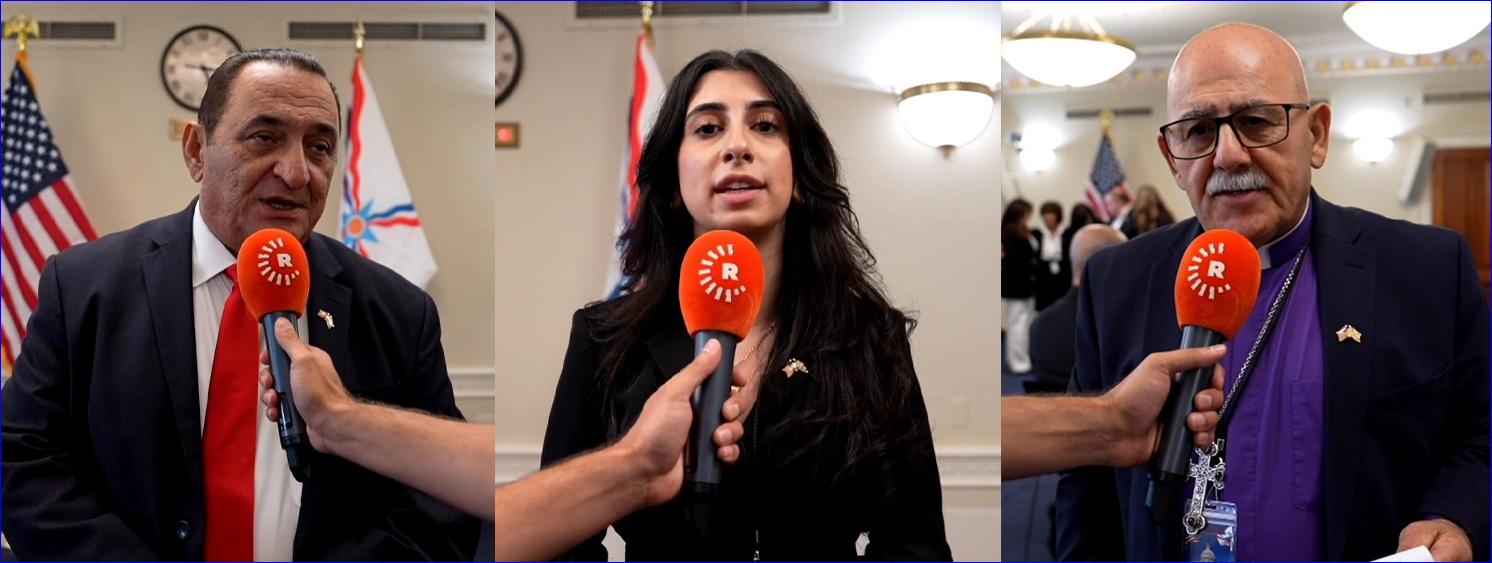


The event was supported by Congressman Abe Hamadeh and attended by Assyrians and representatives of the Kurdistan Regional Government.
Related: The 1933 Massacre of Assyrians in Simmele, Iraq
"This is the very first time ever at the US Congress to commemorate the Assyrian Martyrs Day. We had the support of Congressman Abe Hamedeh in putting this together. It's very important. We need complete recognition by the US Congress of all the massacres and genocides committed against the Assyrians," Sam Darmo, founder of Assyrians for Justice, told Rudaw on Wednesday.
Assyrians annually commemorate the Simele massacre of 1933, when thousands were killed by the Iraqi army. Between August 7 and August 11, the armed forces of the Kingdom of Iraq attacked 63 Assyrian villages located in what are now the provinces of Nineveh and Duhok. The campaign left around 3,000 Assyrians dead, according to a 2003 report from the International Federation for Human Rights.
Chorbishop George Toma, rector of Saint Andrew Assyrian Church in Illinois, said the commemoration ceremony honors "the holy ones of our Assyrian nation whose blood was spilled not for crimes, but for their faith, their heritage, and their very identity."
Sara Hormuz, an Assyrian American human rights advocate, was among the speakers at the event, opening with remarks on Assyrian history, genocide, and the resilience of the community.
"Assyrians are resilient and we're not a dying civilization," she said.
Assyrians are one of the oldest ethnic groups in Mesopotamia and northern Iraq, tracing their history back more than 6,700 years. Religiously, they are now predominately Christian and locally split along Chaldean, Syriac, and Ashuri sects.

or register to post a comment.